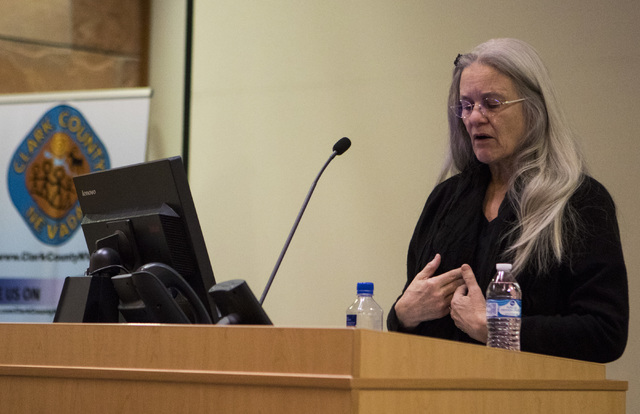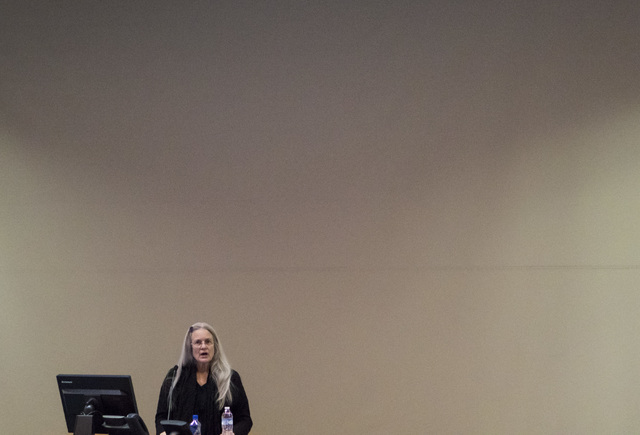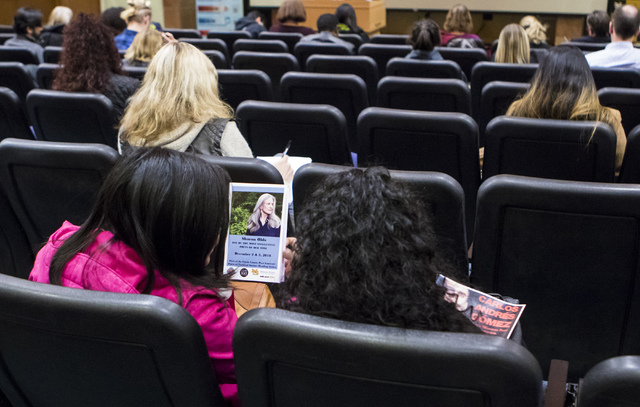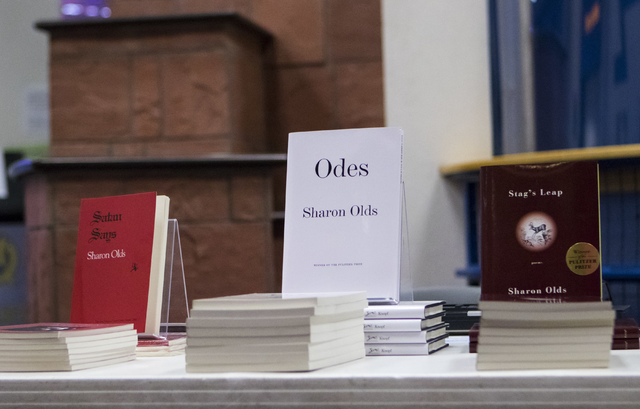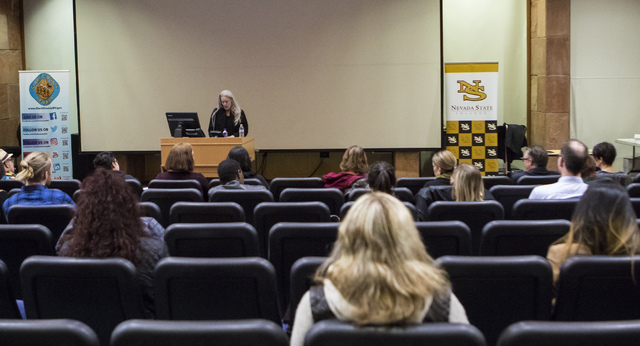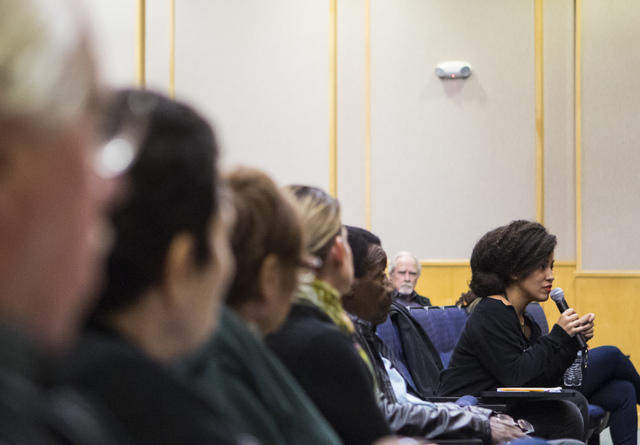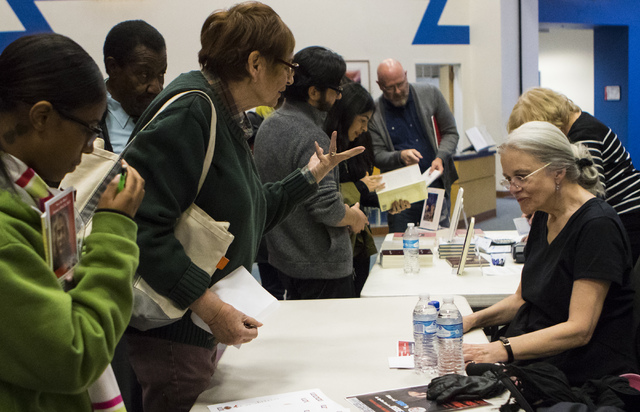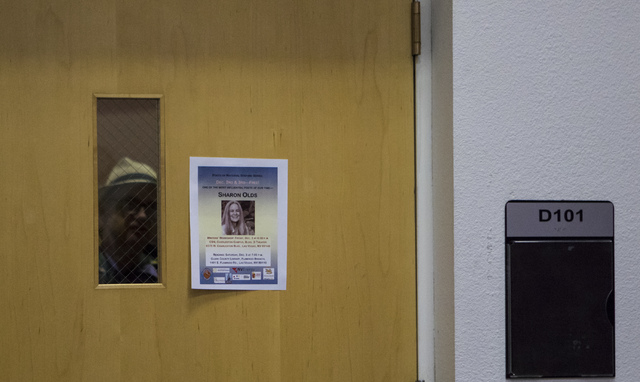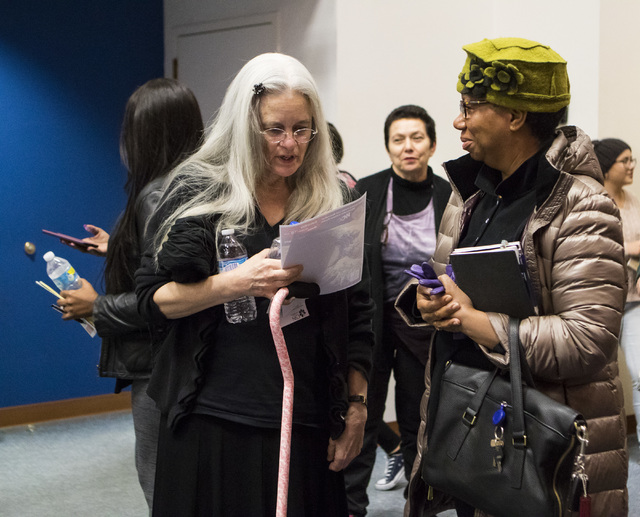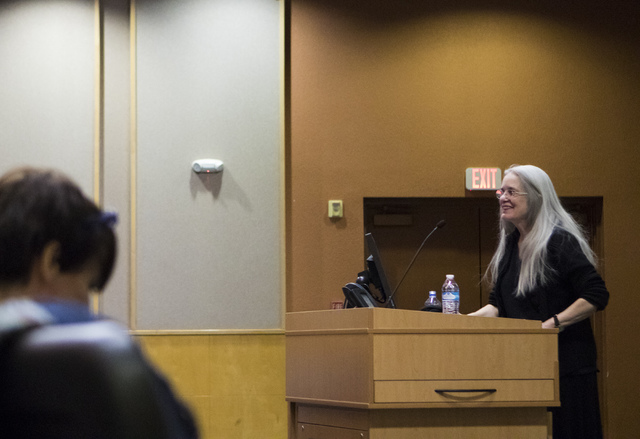Award-winning poet shares writing tips with Las Vegas writers at CSN workshop
She’s the one with the Pulitzer Prize, Britain’s T.S. Eliot Prize and numerous other accolades, including (most recently) the $100,000 Wallace Stevens Prize from the Academy of American Poets.
She’s the one who’s won acclaim through works that explore emotional minefields, from her abusive childhood (she was raised as a “hellfire Calvinist” by unhappily married parents) to the dissolution of her marriage (2012’s Pulitzer-winning “Stag’s Leap”).
In her latest volume of verse, “Odes,” she explores everything from composting toilets to whiskers to hip replacement — and far more intimate topics.
Yet when poet Sharon Olds visits Las Vegas to lead a writers workshop at the College of Southern Nevada’s Charleston campus, she’s just another writer hoping to share her insights with colleagues.
“I don’t know how to teach writing,” confesses Olds, who teaches at New York University. “I love writing with other writers. I love talking about it. I love the company of my fellow writers.”
Including workshop attendees.
The goal is “to somehow express what is within us, partly so we won’t be carrying it around with us,” she suggests. “We also might make something beautiful.”
Which is exactly what Olds has done, according to Bruce Isaacson, Clark County poet laureate, who’s been reading her work since the 1980s and calls her “the most influential poet of our time.”
Olds’ early poems “set a standard of sympathy and truth for poets writing from personal experience,” he notes. “She never flinches from a painful or deeply emotional observation, yet finds redemption, equanimity and beauty even in the most difficult circumstance.”
“She’s just so good as a poet,” Isaacson adds. “Her use of image and metaphor is so compelling. Her voice is so true.”
For attendee Louise McDonald, who’s been reading Olds’ poetry for decades, her poetry is “very raw and very personal. She finds a way to draw on her most intimate and private and personal experiences to make them recognizable.”
Olds gives attendees advice on a question she is sometimes asked: What happens when I need to write about something and nothing is coming to me?
“Think of one person involved, then one article of clothing that person wore — and then you think of one thread, and then a piece of lint on that thread that can sing a little,” she suggests.
Olds, 74, challenges the writers to “let your mind wander” — and ponder the first line of a possible poem.
Last weekend’s workshop and a reading at Clark County Library represent Olds’ first working visit to Las Vegas, she notes in a telephone interview prior to her visit.
“I have flown in at night, and it’s extremely magic,” she says of Las Vegas’ legendary lights. “It’s like a wild and powerful work of art.”
Yet it’s Southern Nevada’s natural beauty that captivates her during her visit, Olds tells workshop participants.
“I have never seen mountains like that,” she says. “Tonight I saw the moon,” a silver sliver hanging in the sky, along with “two jackrabbits” with that same moon “shining inside of their ears.”
Following the brief quiet period when attendees were focusing on first lines of possible poems, Olds responds to questions.
One expresses his love of poetry but bemoans the fact that he doesn’t “do much writing and reading of it,” then asks about dealing with writer’s block.
“I never give assignments, we all know that,” Olds notes. But “if it came to you: the 10 reasons why I don’t read much,” with “each reason having a night creature” involved.
Another technique she uses to spark creativity: “I’ll open the dictionary and point to a word — and add that word to my poem, no matter how much trouble it makes.”
Or she’ll start with a description of “what’s out the window” or “what’s in the cone of the filter” while she’s making coffee.
“I could write a diary of making coffee,” Olds admits, wondering “how do the prismatic bubbles decide” which color — red, green — will settle where.
“I’m just interested in everything,” she explains. “And I’m willing to be somewhat foolish” in exploring those interests in poetry.
And for anyone who might think of writers in general, and poets in particular, as solitary souls communing with their inner muse, Olds has this answer.
“One very precious part of writing is sharing it with someone,” she says in the pre-visit interview. “It’s a profoundly social art. It has to do with community.”
“Writers have an important job in our society,” Olds says, even though “no one knows we do.”
Read more from Carol Cling at reviewjournal.com. Contact her at ccling@reviewjournal.com and follow @CarolSCling on Twitter.

